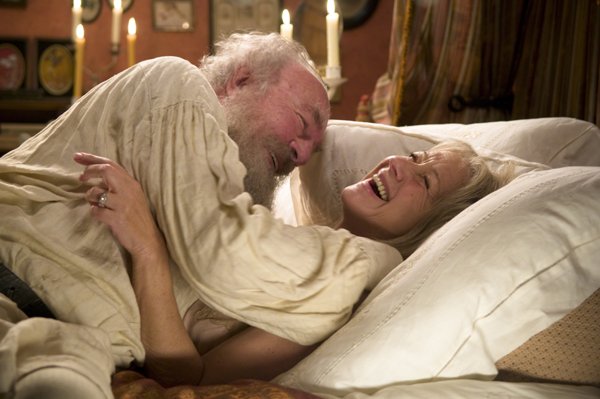LITTLE ROCK — In the pre-dawn hours of Oct. 28, 1910, Count Leo Tolstoy - not only the most famous man in Russia but a kind of secular saint - slipped from his country estate, dressed in peasant clothes and accompanied only by his doctor. He left behind a note to Sofya, his wife and literary collaborator of 48 years (the woman who had borne him 13 children and copied out his masterwork War and Peace seven times over) that basically told her to not come looking for him, as he wanted to die in peace.
“Apart from everything else, I can no longer live in these conditions of luxury in which I have been living,” Tolstoy wrote. “I am doing what old men of my age commonly do: leaving the worldly life to spend the last days of my life in peace and solitude.”
Though he’d been excommunicated by the Russian Orthodox Church nearly a decade earlier, Tolstoy’s first stop was a monastery,presided over by a priest with whom he’d corresponded as a young man. But he charged away from there to a convent where his sister was a nun, where he was met by his daughter, Sasha. She told him Sofya had learned of his location, and would soon intercept him. Then it was on to the station master’s house in Astapovo, where he died of pneumonia on Nov. 10, with Sofya encamped in a private railroad car nearby.
Michael Hoffman’s The Last Station, based on the factderived novel by Jay Parini, recounts this pre-tabloid drama largely through the eyes of Valentin Bulgakov (James McAvoy), a loyal cultist who became the count’s private secretary in his last year. Valentin is caught between his philosophical allegiance to Tolstoy (Christopher Plummer) and Vladimir Chertkov (Paul Giamatti), the unctuous leader of the Tolstyan faction, and his more pragmatic empathy for the long-suffering Sofya (Helen Mirren), who frankly believes the old fool has confused himself with Christ. (Which is probably historically accurate, as Tolstoy discounted the divinity of Christ and the possibility of immortality, while admiring the lessons of Jesus - particularly his Sermon on the Mount.)
Valentin becomes a kind of double agent, privy to themachinations of both camps, while at the same time falling under the erotic spell of a proto-Communist Masha (Kerry Condon).
Yet while The Last Station is buttressed by two of thepast year’s most entertaining performances - Plummer and Mirren were both deservedly nominated for Oscars - the film as a whole is slightly underwhelming, in part because Tolstoy is simply too big a figure to fit into a two-hour drama.
While no one might watch a film about Christian anarchism, Tolstoy’s often contradictoryphilosophy is not well-served by the sort of oversimplification demanded by movie audiences. This is the sort of story that might be better left to novelists than filmmakers. Though Hoffman and Plummer constrain Tolstoy to human proportions, his overbearing genius haunts the production. His personal hypocrisies mirrored the problems endemic to the comingrevolution; Tolstoy was a signal influence on Ghandi and Martin Luther King Jr.
It’s probably wise that the filmmakers chose to take such a small bite of such a rich legend, but The Last Station is ultimately a rather melodramatic period costume drama, a little lustier and vigorous than most, but no more edifying or, in the end, indelible.
MovieStyle, Pages 35 on 02/26/2010
